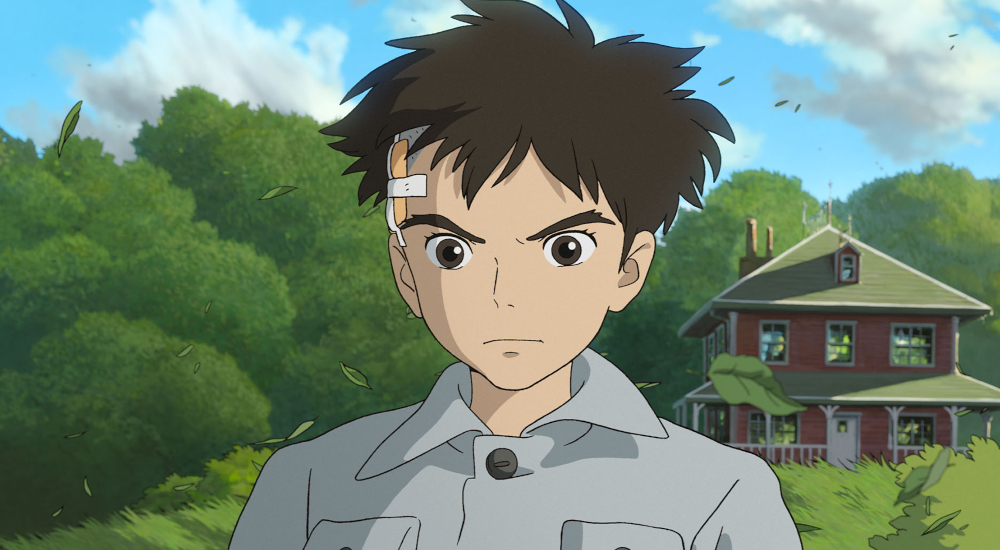It's an undisputed fact that Hayao Miyazaki is one of the greatest filmmakers to ever live. While many assumed his 2013 opus The Wind Rises would be his final story for Studio Ghibli, it appears he had at least one more left in him. Whether The Boy and the Heron marks his final feature effort remains to be seen. And whether it's in his top tier as a director or not will be debated long after he passes. So it's fitting that his latest is about storytelling, legacy, unrealized dreams and, uh, bird poop.
I do not profess to be a Miyazaki scholar, so those who have watched all his films over and over may find more to love here than I did. Some of the character designs are awfully familiar, which may delight his biggest fans but did little to impress me. The story - a deeply personal one for Miyazaki - covers some well-trod ground, too.
Mahito finds himself retreating into a dream world after the death of his mother and a move from bustling Tokyo to the idyllic countryside. While recuperating from a schoolyard fight, he discovers a novel gifted to him by his late mother. But a pestering heron keeps enticing him to enter a shuttered tower on the grounds, claiming he can be reunited with her. This forbidden fortress contains passageways to an alternate dimension on the verge of collapse: a world filled with parakeet armies, magical relatives and some of the most beautiful images of the year.
The Boy and the Heron is often stunning to look at. But the dream logic and ever-changing rules of this alternate dimension make for an often confusing last hour. Still, it's not difficult to understand the emotional underpinning here. There's a lot of Miyazaki himself in the mysterious Granduncle, who created this crazy world. He wants to appoint Mahito as his successor. But doing so would cut off Mahito from the real world permanently, which creates genuine tension. However scattershot the film may be, it does tie its many threads together beautifully.
Miyazaki's legacy has long been secured. But if he wants to tell more stories grappling with that legacy, you won't hear any complaints from me.

